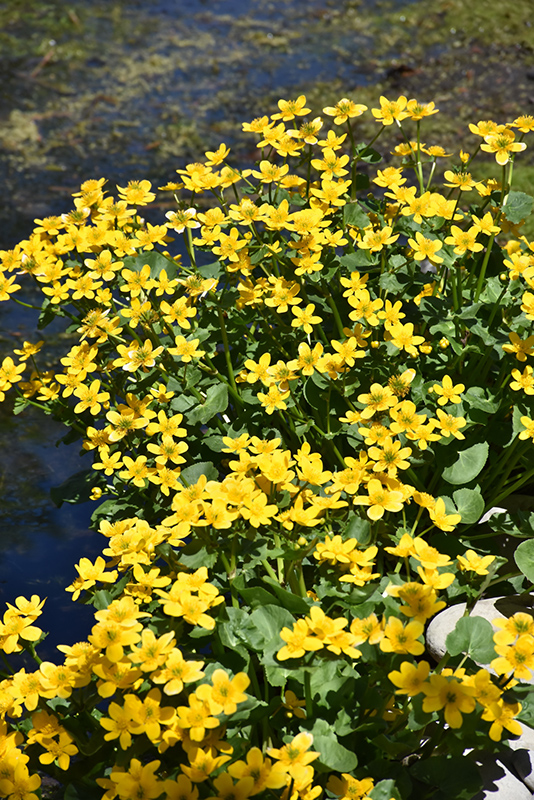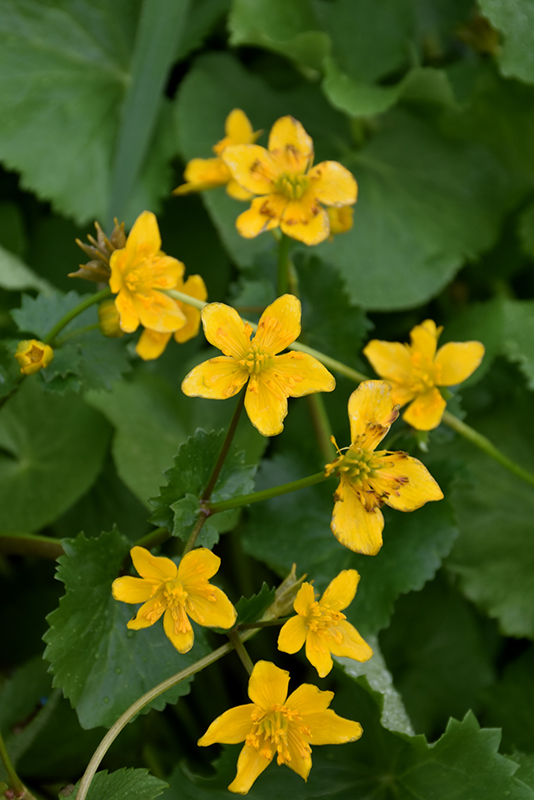Plant Height: 8 inches
Flower Height: 16 inches
Spread: 12 inches
Sunlight:
![]()
![]()
Hardiness Zone: 2a
Description:
A moisture loving selection that features lovely dark green, heart shaped foliage with bright yellow flowers on top; low maintenance with a spreading habit, perfect for beds, borders and woodland gardens
Ornamental Features
Marsh Marigold features subtle yellow buttercup flowers at the ends of the stems from early to late spring. Its heart-shaped leaves remain dark green in color throughout the season.
Landscape Attributes
Marsh Marigold is an herbaceous perennial with an upright spreading habit of growth. Its medium texture blends into the garden, but can always be balanced by a couple of finer or coarser plants for an effective composition.
This is a relatively low maintenance plant, and may require the occasional pruning to look its best. Deer don't particularly care for this plant and will usually leave it alone in favor of tastier treats. It has no significant negative characteristics.
Marsh Marigold is recommended for the following landscape applications;
- General Garden Use
- Naturalizing And Woodland Gardens
- Bog Gardens
Planting & Growing
Marsh Marigold will grow to be about 8 inches tall at maturity extending to 16 inches tall with the flowers, with a spread of 12 inches. It grows at a medium rate, and under ideal conditions can be expected to live for approximately 10 years. As an herbaceous perennial, this plant will usually die back to the crown each winter, and will regrow from the base each spring. Be careful not to disturb the crown in late winter when it may not be readily seen! As this plant tends to go dormant in summer, it is best interplanted with late-season bloomers to hide the dying foliage.
This plant does best in full sun to partial shade. It prefers to grow in moist to wet soil, and will even tolerate some standing water. It is not particular as to soil type or pH. It is somewhat tolerant of urban pollution. Consider applying a thick mulch around the root zone in both summer and winter to conserve soil moisture and protect it in exposed locations or colder microclimates. This species is native to parts of North America, and parts of it are known to be toxic to humans and animals, so care should be exercised in planting it around children and pets.






